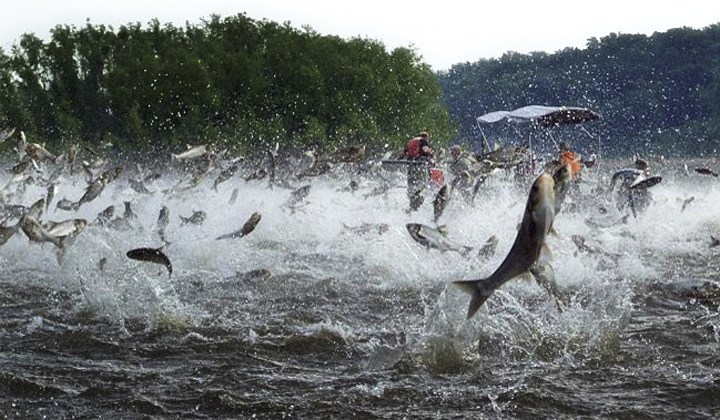In early April, a new industrial park devoted to Asian carp processing opened in Kentucky, giving the fishing industry some serious fire power in the fight against the invasive species in the Mississippi River.
The International Fisheries Industrial Park is the first of its kind in the United States. Two Rivers Fisheries, which works to process and export a variety of carp species, will reportedly be the nucleus of the park's business cluster but will be joined by 12 other companies.
“This is my vision — for years, I know — for the future. This is our future — Asian carp future. We need a huge market. We need a value-added product,” said Angie Yu, a Chinese-American business woman and president of Two Rivers Fisheries, in an interview with Xinhuanet. Two Rivers Fisheries has been operating in the region since 2012.
The companies will produce Asian carp products such as foods and fertilizer, as well as products related to the industry, such as nets to catch the invasive species.
Yu said the park, which sits on 64 acres of wooded land in Wickliffe City, is expected to bring more than 100 jobs to the area.
All the investors starting the businesses are from China.
Chengguang Jiang, an owner of a company that will produce Asian carp meatballs, described his decision to open up shop in Kentucky.
“When I come to Kentucky, I see 15, 20, 30 even 50 pounds of Asian carp in beautiful waters, and I see this as a golden opportunity,” he told WPSD 6 through an interpreter. “I will invest here, and I will also be running the company. And I will be a part of the community."
Asian carp — bighead, silver, grass and black carp — were introduced to the United States in the 1970s for algae and waste treatment purposes. Flooding and accidental releases brought them into the Mississippi River system, where they have multiplied rapidly and now outcompete natives species for food.
Fishermen and chefs in the region have been working to rebrand the species and get American consumers interested in eating them through marketing campaigns.







